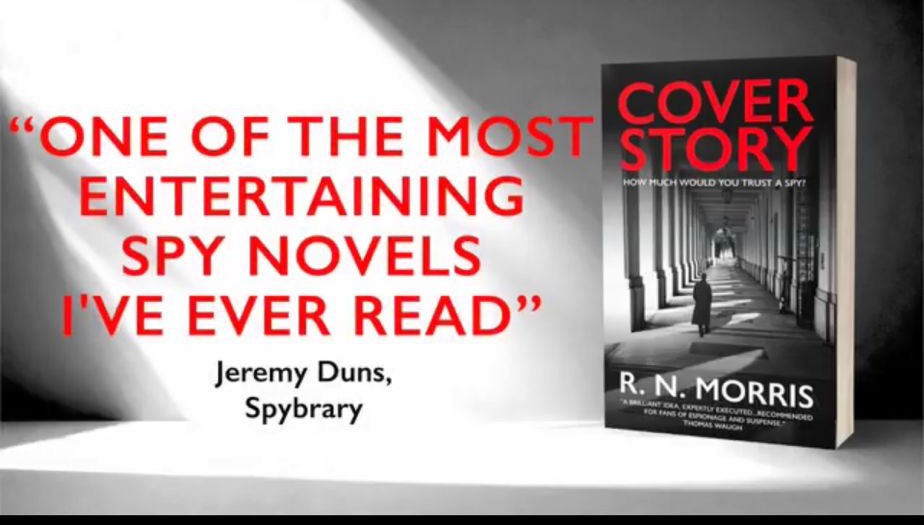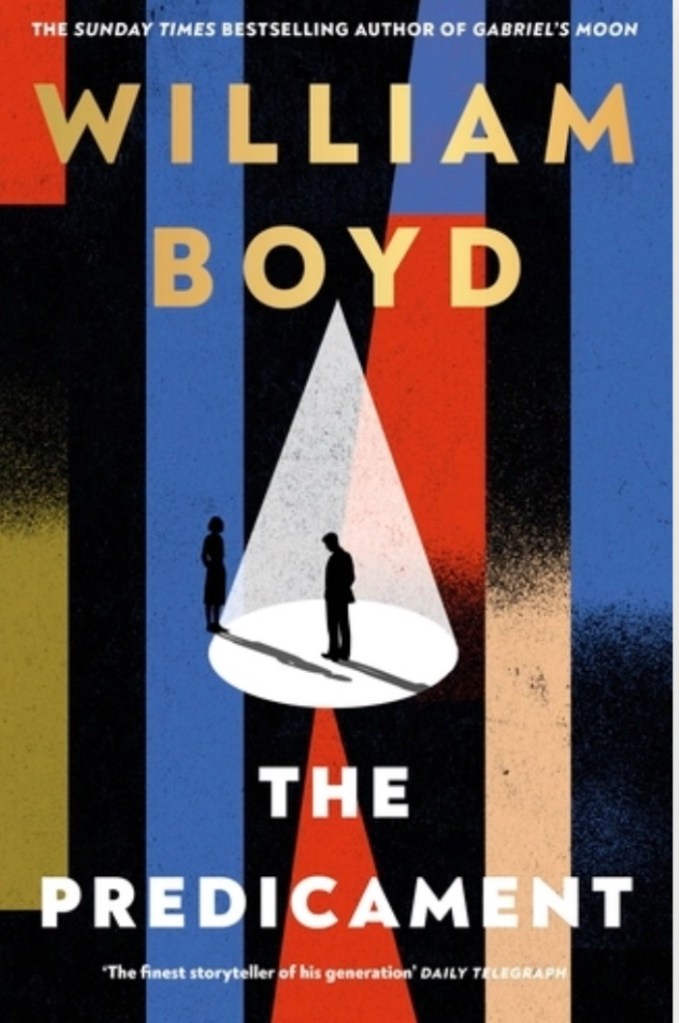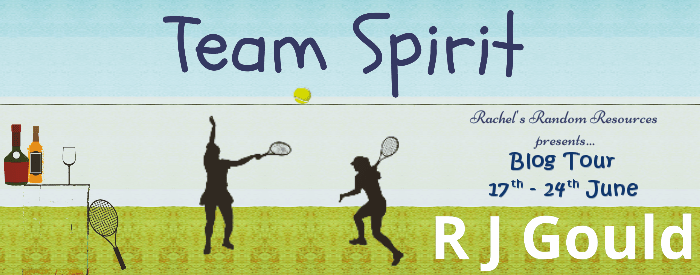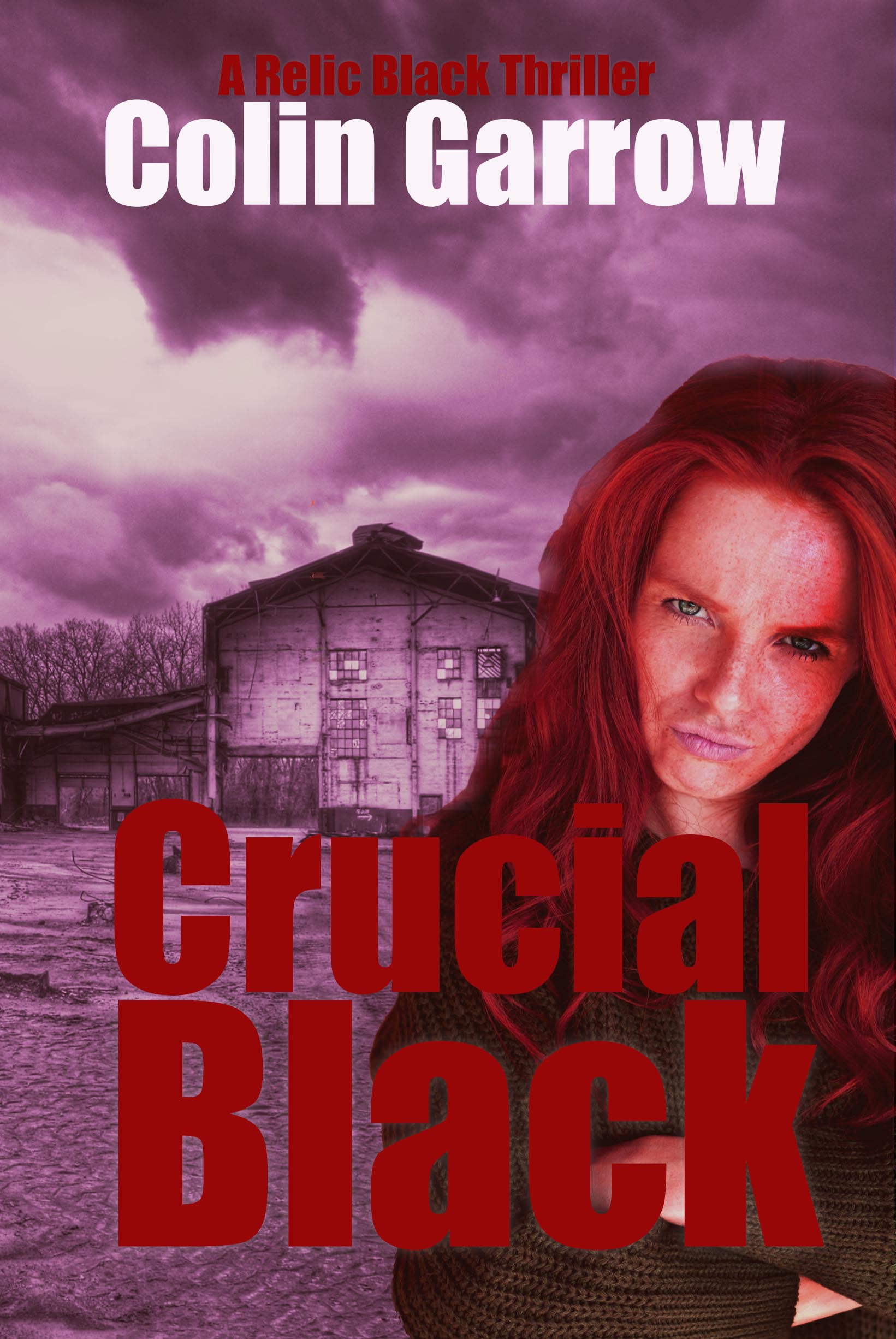‘Cover Story’ by R.N Morris

A Member of Parliament once described me as, “a Walter Mitty-like man” in the press.
Now, I should say that he had received quite a lot of provocation from me, as this came in the middle of an exchange of public letters which was probably best described as “colourful”.
However, I was impressed.
Firstly because I had assumed he’d written more books than he’d read so the gently obscure literary reference to a now little-known short story was interesting.
Secondly, I thought his chief of staff had written it for the same reasons!.
But thirdly, I thought it was quite a good insult. The sheer range of hobbies, interests and experiences I’ve tried to cram into my paltry time on this Earth probably does make me seem a little Walter Mitty-ish to some.
Of all the failed careers, experiments and states of mind, I think writer is the one I mourn the most.
I have a novel on a shelf somewhere. I think it is, objectively, awful. But I finished it, I drafted it, I sent it to some publishers with predicable results.
I was pleased to have even finished it. I’m reliably informed this itself is unusual.
I moved on: to more journalism, more blogging, more coaching, more politics. All while working full time and struggling to find time to write.
I will get back to it. I think the writing is in me. I can’t leave it alone. Like a damaged tooth persistently poked with a self destructive tongue.
I say all of this by way of preamble to a novel which enters the list of top reads of 2025 with a bullet.
‘Cover Story’ by R.N Morris is one of those books so good I’ll have to leave my own work on the shelf a bit longer. I daren’t step into the same pond as someone this good.
It was Jeremy Duns who alerted me to it, (not exactly a slouch on the literary front himself, our Mr Duns).
Apparently inspired by a throwaway scene in Mount Rushmore espionage tv, ‘Le Bureau’, ‘Cover Story’ sees a struggling writer recruited by an old university friend to write a book on behalf of a spy.
Potentially, my adoration of the book was cemented by the introduction of Chris ‘Lazyboy’ Lazenby.
“One of those university contemporaries whom Col had sounded off to Jason about. Public school background, projecting the demeanour of an affable buffoon: sporty, boozy, posh-laddy, famously lazy… ”
Does all enjoyment come from egotism? Not sure, but I’m self aware enough to have sent that to a couple of university chums of my own.
“Saw this in a book. Rude. I feel “seen” as da yoof no longer say…”
“Hello Chris,” the first replied.
“Who has based their character on you this time?” said another.
So I was in. Fairly quickly I was sold that Morris could successfully structure a spy story and the inherent paranoia in the set up – basically “just because you’re paranoid doesn’t mean they’re not after you” – was well handled.
What I was really not prepared for was twofold: the way that Morris used the internal voice of the character and the spinning of hypothetical events and dialogue which is the domain of the writer to so effectively heighten the set up.
Secondly, I hadn’t been prepared for the quality of the writing. “You’ve scratched your nail on the windowpane of eternity,” a character says at one point.
There is also a knowingness and wry amusement to both the book and the writing.
Structured in the same way writers plan and structure stories (or do if they read the sort of how-to books which take you away from writing but feel like they are making a contribution anyway), Morris has all sorts of fun with the encroaching paranoia of his disintegrating hero.

“Now, in the cold light of day, to employ a cliché, which Col never normally liked to do, but this was an extreme situation, and extreme situations, if they did not exactly call for clichés, they at least connived at them… Yes, in the cold light of day, all the qualms he should have felt last night flooded over him. He was suddenly drowning in qualms.”
“What do babies dream about? Col wondered in passing. Elemental things. The warm sluice of sustenance from an indestructible nipple. The joy of shitting. The puzzle of a face and the unfathomable patterns of sound that came from it.”
“It was hard to imagine anything bad happening in a place that smelled of expensive cheeses and organic sausages, where he was protected by baskets of sourdough loaves and shelves of pickles.”
Those quotes are funny enough to have come from the current master of funny spy fiction, Mick Herron.
But I actually think the comparison inaccurate. Morris owes as much to Anthony Powell and Evelyn Waugh as he does to Herron or John Le Carre. While the hero lacks agency, the sentences continue to tumble, amusing the readers even as the protagonist suffers.
A fairly short novel, ‘Cover Story’ nails the insecurities of anyone who has ever seriously tried to put pen to paper.
The fact that it is so successful and sophisticated in its execution is a triumph for its author and one, I hope, he’ll have time to enjoy.
For those of us still marinating in our failure? Well, at least when I spiral off inventing scenarios at people encountered in trivial and brief moments? It turns out I may not just be a mad, Walter Mitty-like fantasist. I may just be a writer instead.
Post Script: An error with transferring the pdf of this novel to the Books app on my phone rendered the author as someone else, adding a lovely case of doubt as to the original author and echoing some aspects of the plot. I love a coincidence which can trigger paranoia all on its own. I think Roger Morris would approve…















